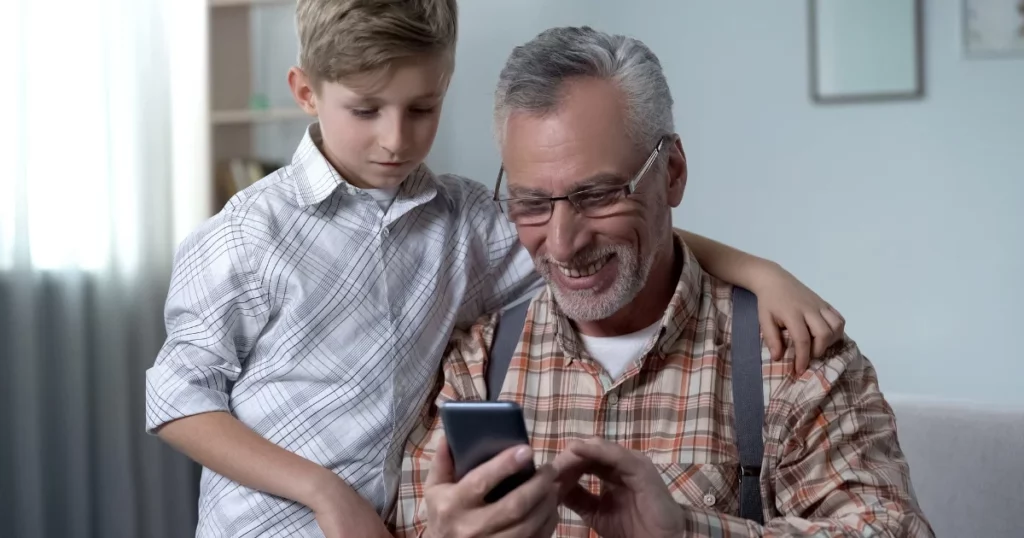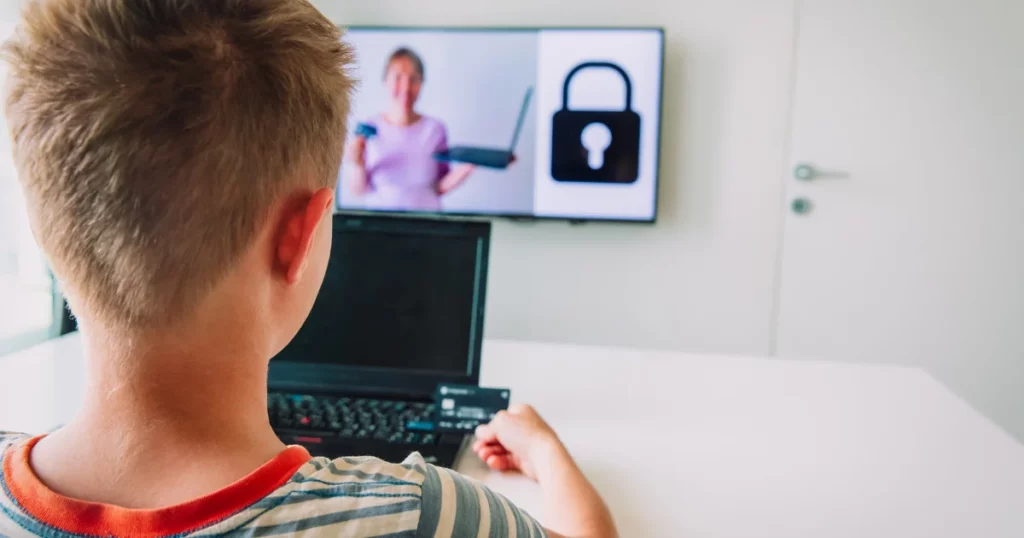How to Explain Internet Safety to a Child
- October 13, 2023
Today’s youth grow up as ‘digital natives,’ routinely interacting with the Internet for social, educational or leisure purposes. The internet has numerous pros that can improve a child’s life and many cons as well.
Children may understand the nature of internet access and usage but do not necessarily understand the dangers involved with it. Therefore, it is necessary to start candid discussions about net safety and its importance in order to protect them.
To begin, we will explain the concept of digital safety, including its crucial significance, discuss how to approach the topic of internet safety for kids, and provide practical tips for raising your child’s online safety.
Why Children’s Internet Safety Is Important
Table of Contents

Children of school age usually get pleasure from browsing the internet, viewing videos, playing games, and meeting friends and family. In addition, they can use it for studying or completing class work. They may also use it for personal leisure activities. School-age children have multiple ways of accessing the online world, including computers, mobile phones, tablets, smartwatches, televisions, as well as other internet-connected toys.
Compared with younger children who still need guidance from adults when they are on the Internet, school–age children are becoming more independent and can access the Internet on their own without supervision. Their level of safety online is therefore higher. It is particularly when one considers communication by children through the internet that specific risks arise, such as chatting applications, social media, and online games.
In doing so, it will shield your child from possible harm or unsuitable content and activities and provide your kid with crucial skills for navigating online environments safely by themselves. Therefore, your child will be able to reap the maximum benefits of online experiences, including those related to learning, discovery, creativity, and social interaction.
Internet Safety Tips For Kids

It is not easy to guarantee full online security for your children. However, your kids might still get hold of other gadgets without parental control. You need to equip your children with skills to help them make good online choices even when they may not be under your direct guidance for their safety.
Here are some general recommendations to consider when providing online safety for kids.
Learn everything you need to know about the Internet. Knowing how to navigate the online world is not just about understanding potential risks; it makes meaningful conversations with your children possible as well.
- Be clear about the rules relating to your children’s online behaviors. Rules teach your child what to expect. Don’t wait until something happens, rather define these rules out.
- Teach Your Children about Protecting Private Data. Giving out details such as cellphone numbers, residential addresses, and credit card information through the Internet is dangerous. This can then be exploited by unauthorized people and compromise the security of your people.
- Teach your Children How to Use Social Networking Sites Responsibly. The websites like Facebook enable all age groups to share photos, and videos and to talk among themselves. Even when you share such information with friends, it could end up in the wrong hands somewhere. In most cases, individuals should put up for public view only those contents that they can share freely with a worldwide audience.
- Create a situation in which your children can feel free to talk to you about any problems that they face while using the internet. The idea is that when a problem crops up, your child should report it to you instead of concealing it. Bear it mind that children can find themselves landing on harmful information while surfing online.
- Engage in continuous conversations with your children regarding their Internet activities. Discussing what goes on online promotes honesty. If you regularly listen to your children’s tales of their online activity, they will be more likely to ask for your advice when problems occur.
Conclusion
As internet has become a significant component of our everyday life, it has assumed even greater importance to educate your son on dangers of being hooked on to the net. You must speak with your child about the probable threats that put his or her internet safety at risk. They should also be able to recognize and prevent such risks and know whom to turn for help when faced with any bad behavior over the Internet’ Online.
Related Articles
FAQs
Being safe on the internet involves being secure and making wise decisions whilst using it. This is just as good as keeping your doors locked when leaving your house. Whenever you share online, ensure that your personal details are not exposed. Also be able to handle any problems that might arise. Safety and Safe Online.
Following are the five tips of internet safety for kids.
- Keep personal info private.
- Be cautious with strangers.
- Think before you post.
- Say no to online bullying.
- Talk to trusted adults about worries.
Talk Openly: Discuss with your 10-yr old the internet and dangers using some calmness. Ensure that they can raise questions comfortably.
Set Rules: Set boundaries on their use of screens, websites and apps.
Privacy Matters: Make sure they learn never share their name, address or school details with a stranger.
Online Manners: Why it is vital to be kind in cyberspace and not pass on malicious or private gossip regarding others.
Supervise and Monitor: Check in with them at lease initially. Parental controls, if they use Social Media accounts.
Internet safety is like wearing a helmet while cycling. This involves adopting strong and personal passwords, avoid discussing your personal information with strangers, and posting with caution online. Wearing a helmet shields your head, while internet safety safeguards your online existence against potential hazards. And among all of these, internet safety for kids is the most crucial thing to consider.




